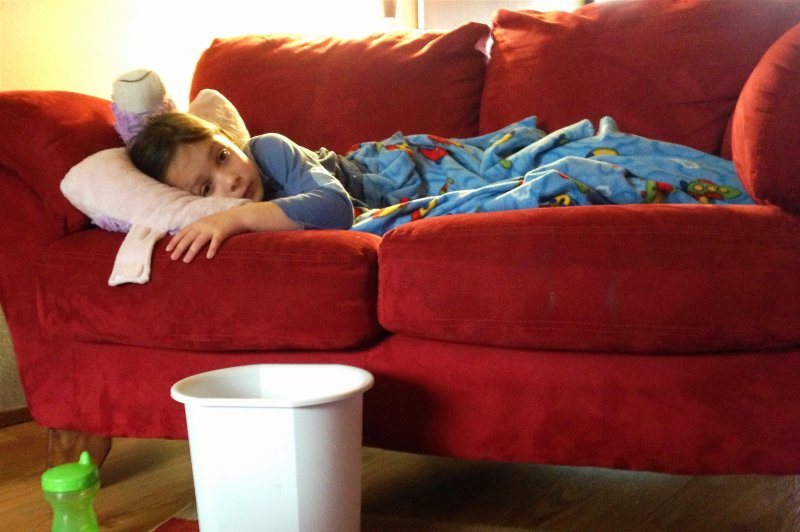The FDA announced on Thursday it has banned cough medicines that contain opioids from being used with children. Photo by
Loren Kerns/Flickr
THURSDAY, Jan. 11, 2018 -- Trying to put a dent in the ongoing opioid addiction crisis, the U.S. Food and Drug Administration on Thursday slapped strict new restrictions on the use of opioid-containing cold and cough products by kids.
These prescription medicines involve any that include codeine or oxycodone, the FDA said.
"After safety labeling changes are made, these products will no longer be indicated for use to treat cough in any pediatric population and will be labeled for use only in adults aged 18 years and older," the FDA said in a news release.
The newly updated Boxed Warning on these medicines will also warn adult users "about the risks of misuse, abuse, addiction, overdose and death, and slowed or difficult breathing that can result from exposure to codeine or hydrocodone," the agency added.
"Given the epidemic of opioid addiction, we're concerned about unnecessary exposure to opioids, especially in young children. We know that any exposure to opioid drugs can lead to future addiction.
It's become clear that the use of prescription, opioid-containing medicines to treat cough and cold in children comes with serious risks that don't justify their use in this vulnerable population," FDA Commissioner Dr. Scott Gottlieb said in the news release.
"It's critical that we protect children from unnecessary exposure to prescription cough medicines containing codeine or hydrocodone," he added. "At the same time we're taking steps to help reassure parents that treating the common cough and cold is possible without using opioid-containing products."
The move comes after a 2017 decision by the FDA to add its strongest warning -- a "contraindication" -- to labeling for prescription products containing codeine. That labeling restricted use to children aged 12 and over "due to a specific risk of ultra-rapid metabolism in certain patients," the FDA explained.
The new rules announced Thursday were "based on an extensive review of available data and expert advice," the agency said.
They go much further than the 2017 labeling rules -- restricting use of codeine-containing products to everyone under the age of 18, and including cough-and-cold products that contain a second drug, the opioid oxycodone.
In any case, there's little that can or should be done to ease most children's cough and colds, the FDA said.
"Experts indicated that although some pediatric cough symptoms do require treatment, cough due to a cold or upper respiratory infection typically does not require treatment," the agency said. "Moreover, the risks of using prescription opioid cough products in children of all ages generally outweigh the potential benefits."
The FDA pointed to known side effects of opioid medications, including "drowsiness, dizziness, nausea, vomiting, constipation, shortness of breath and headache."
One physician who's dealt with the aftermath of opioid overuse applauded the move.
"It's commendable that the FDA is acting to expand safety use labeling not only for children and teens, but adults as well," said Dr. Robert Glatter, an emergency physician at Lenox Hill Hospital in New York City.
"The opioid epidemic has many origins, but can begin with exposure to [opioids] at young ages," he said. "We know that some children and teens may, in fact, develop a predilection for the 'high' the prescription cough syrups deliver, and subsequently attempt to deceive parents and health care providers regarding the severity of their symptoms to obtain such a prescription."
So what's the advice for parents who may be using these medicines for their child already? According to the FDA, they should talk to their child's doctor about alternative therapies.
It's always important to read medicine labeling, too -- even if it's not obtained by prescription.
"Caregivers should also read labels on non-prescription cough and cold products," the FDA said, because "some products sold over-the-counter in a few states may contain codeine or may not be appropriate for young children."
More information
There's more about this issue at the American Academy of Pediatrics.
Copyright © 2018 HealthDay. All rights reserved.
![]()
















